Unless you’re a plumber or a pipe relining expert, you may not realise how many different types of materials plumbing pipes can be made out of. In this article, we’re going to have quick look at the most common types of plumbing pipes you’ll find, and have a look at their advantages and disadvantages.
If you’re having problems with your existing pipes, the good news is you may not have to replace them. Pipe relining is a cheaper solution for fixing damaged pipes. It’s quicker and far less invasive than digging trenches or calling out a traditional plumber.
To help you find what you’re looking for, use these quick links to jump to the section that you’re most curious about:
The best plumbing pipes for your home or commercial building
Before we talk about the best pipes for your property, let’s explore the five main pipes you can expect to see around the perimeter. Keep reading for the full list.
5 Most common plumbing pipes
Curious about what pipes might already be fitted to your Aussie home? Keep reading to discover the five most common types of plumbing pipes used around the country.
1. Copper plumbing pipes
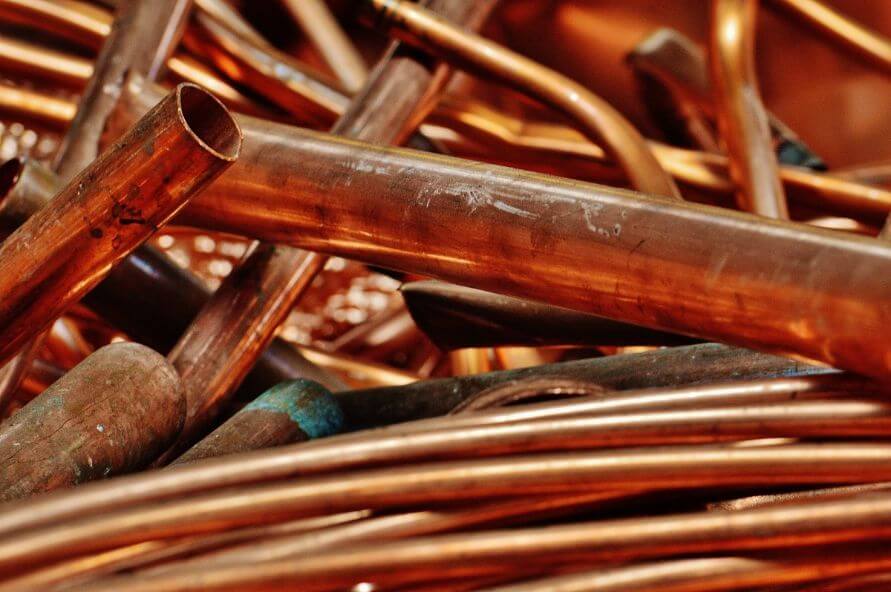
Copper piping is one the most commonly used materials in Australia, especially when it comes to tight spaces and interior plumbing. When used underground, it’s recommended you have an inner and outer layer, with a plastic protective layer to avoid damage.
Average lifespan of copper pipes: Copper is one of the most long-lasting materials you can use for plumbing pipe. There are copper pipes installed 60-70 years ago that are still running strong. If you plan to use copper, make sure your plumber uses locally made copper pipe. Australia and New Zealand have strict regulations regarding copper pipes that may not be standard in other countries, which could be costly to you down the track.
Pros:
- Longevity: One of the biggest advantages of Copper Pipes are their longevity. Copper is able to resist corrosion,
- Durability: Unlike other materials, copper is corrosion resistance and is generally known for being a strong material.
- Recyclable: In the eventual circumstance you need to replace copper pipes, copper is a very re-useable material and easily be recycled.
- Safety: Copper Pipes are great for hygiene as it’s not a good place for bacteria to breed. Copper also won’t contaminate the water any way, making it ideal for drinking water supply lines.
- Temperature Tolerance: Copper pipes are great for hot and cold water, as it is very adaptable towards extreme temperatures.
Cons:
- Expensive: The biggest deterrent with copper is the price. It is easily one of the more expensive materials to build with.
- Environmentally unfriendly: Although it is a recyclable material, copper needs to be mined and manufactured which can have a negative impact on the environment
- More difficult to install: Copper can take longer to install than plastic, though nowadays, copper piping often uses push-fit/crimp connections over soldered fittings which cuts down the installation time drastically.
2. PVC plumbing pipes (polyvinyl chloride)
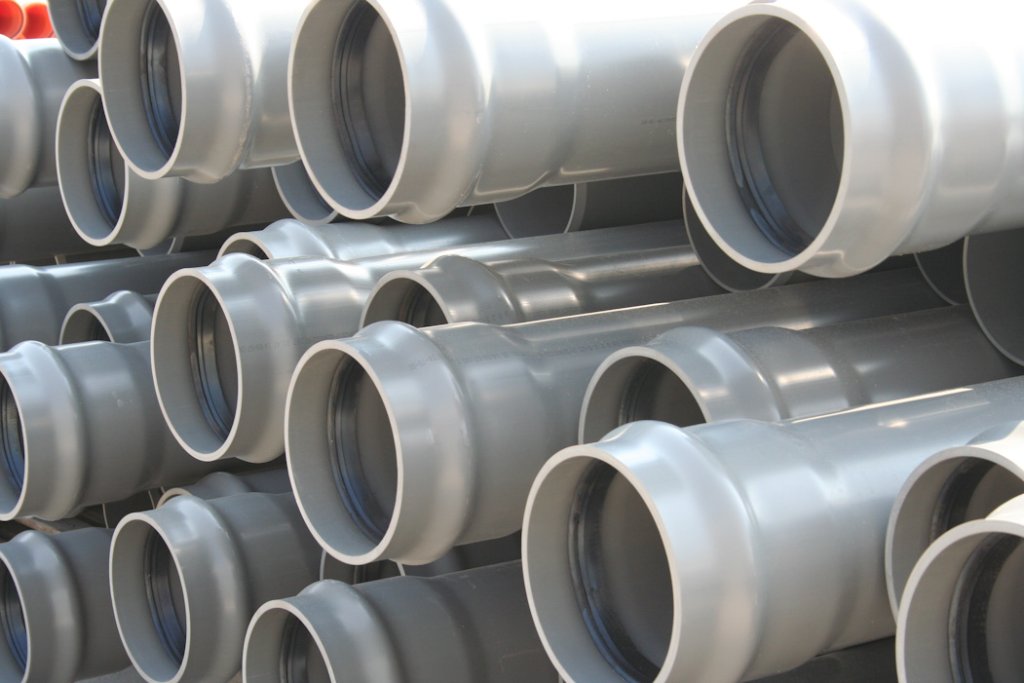
Currently the most popular pipes (along with ABS pipe) used in the homes and most commercial areas. These plastic piping is commonly used for sewerage pipes, as flexible PVC pipes are easy to manoeuvre.
Average lifespan of PVC plumbing pipes: This can vary depending on the quality of your pipes and the type of plastic pipe you’re using. It can range from anywhere from forty to 100 years depending on the quality of the pipe. Issues with outdoor plastic piping can often be fixed with a relining saving you the cost of a complete replacement.
Pros:
- Larger pieces: PVC pipe can come in a range of sizes which requires less joints.
- Chemical resistant: Plastic pipe are non-corrosive and resistant to most chemicals (some types more so than others so discuss this with your contractor).
- Easy to adapt: Plastic pipes are among the most variable when it comes to sizes and can often be custom made to meet your needs.
Cons:
- Warping: One of the possible downsides on PVC Piping is it can be prone to warping when exposed to extreme temperatures.
- Not suitable for high pressure environments: Some industries require high pressure pipes for their business to function and PVC is not an appropriate option. However, this isn’t an issue for your home.
3. Clay plumbing pipes
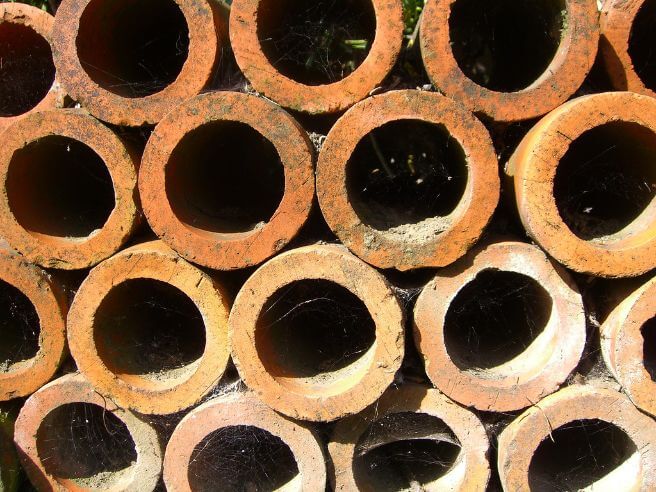
In the past, clay pipes were the go to option for Australian homes and their plumbing needs. Older homes often still have clay pipes, however, plumbers often recommend replacing them with plastic pipe material or something more durable.
Average lifespan of clay plumbing pipes: Clay pipes can last for up to 100 years, providing they don’t crack from the earth moving around them, which they are prone to do.
Pros:
- Rust Proof: Clay won’t rust like other material and has less chance of corrosion.
- Copes well with heat: Clay pipes tend to handle high temperatures well.
Cons:
- Fragile: The biggest disadvantage of clay pipes is their susceptibility to tree roots and the damage they can cause. They’re also at risk of cracking under pressure.
- Heavy: When installing, clay pipes are very heavy yet fragile, making them a chore to install successfully.
- Difficult to find: Though still possible to buy, it will be hard to find and you’re unlikely to find a contractor or plumber who’ll recommend it.
4. Galvanized steel pipes/cast iron pipes
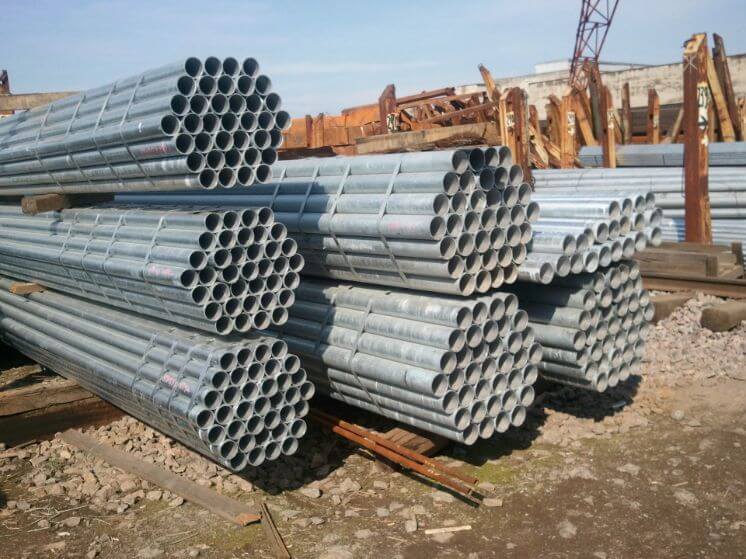
Galvanized pipe are steel pipes commonly used in Australia during the 1950s-60s. Nowadays, plumbers don’t typically install them. However, if you own an older home, it is possible to still have these pipes in tact.
Similar to galvanized steel pipes, however cast iron pipe has an internal/external coating that helps prevent corrosion. Like galvanized steel pipe, cast iron is rarely used these days, though when it is found, it’s sometimes used in multi-unit developments or similar setups, due to it’s noise cancelling properties.
Average lifespan of galvanized steel pipes: Galvanized steel pipe tends to last for 20 to 50 years which may seem like a long time, but it much shorter than a lot of other materials.
Pros:
- More corrosion resistant: If you’re worried about a corrosive environment, galvanized steel pipes are great for moist environments.
- Sturdy material: Though not installed as often as it was in the past, the good news is that cast iron is a reliable material, so if you buy a pre-existing house with galvanized steel pipes, it’s unlikely to be something to concerned about.
Cons:
- Heavy and hard to install: Compared to plastic pipe, cast iron and galvanized pipes are very heavy, require special tools to cut, and are costly.
- Not always durable: Galvanized steel pipes are vulnerable are not corrosion resistant which can be an issue when transporting drinking water.
5. ABS piping material
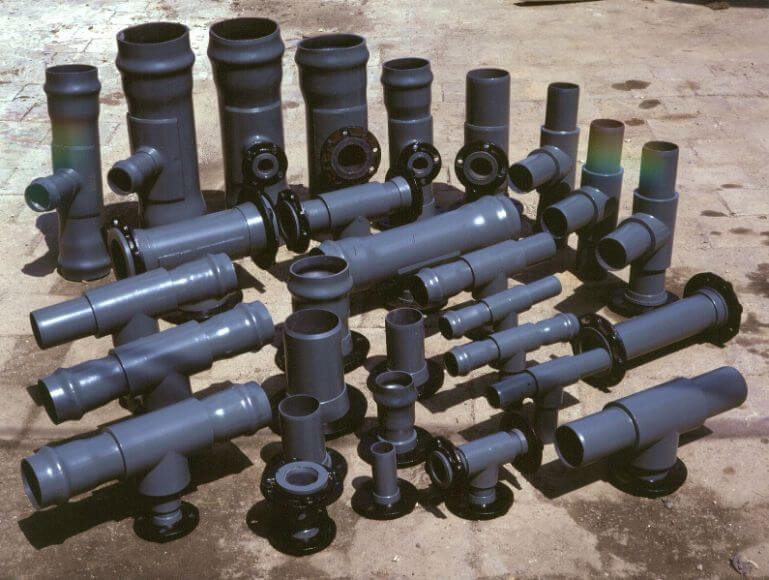
ABS pipes are similar to PVC pipe, though they tend to have black colour and are a common material for sewer lines and storm water pipes.
Average lifespan of ABS piping: They typically last anywhere from 50-80 years.
Pros:
- Cost effective: Like PVS, ABS piping is much cheaper than metal pipes.
- Better Flow Rate: Due to the smoother inner-surface, the flow rate is superior in
- Stronger than PVC: One reason a plumber may choose ABS over PVC pipe is that is a stronger material.
- Easy to Install: Plastic pipes are much easier to install than those made of steel.
Cons:
- Cannot be used outdoors if exposed: ABS pipes are vulnerable UV rays.
- Need to be installed correctly: If installed incorrectly, the pipe is at risk of bowing or sagging.
The best plumbing pipes for your home or commercial building
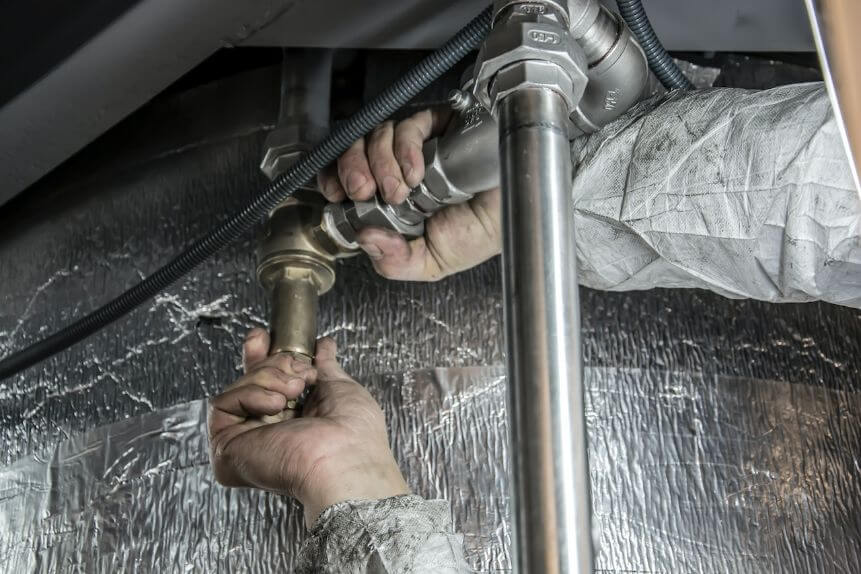
Keep in mind that some of the above materials are no longer commonly used. However, you still have a few choice when it comes to material for your pipes. Your choice of pipe will come down a few basic factors including:
Function: Different materials will work better for different purposes.
Where you’re installing: The area you’re installing in can influence your decision when it comes to pipe material.
Price: Everyone has a budget, and this will influence your choice in material.
Have a chat to a trusted professional and they will be able to advise you on the best setup for your requirements.
Our experienced team can answer any questions you have and will have your pipes fixed in no time. Book your free pipe relining consultation here or call us on 02 8339 4695.
Back to Top